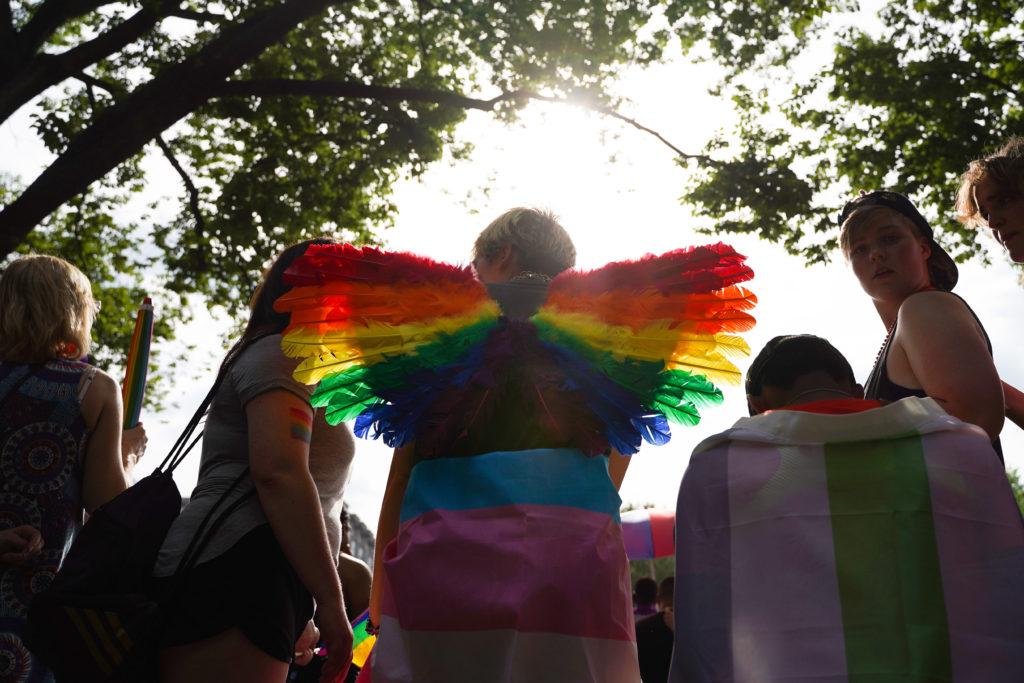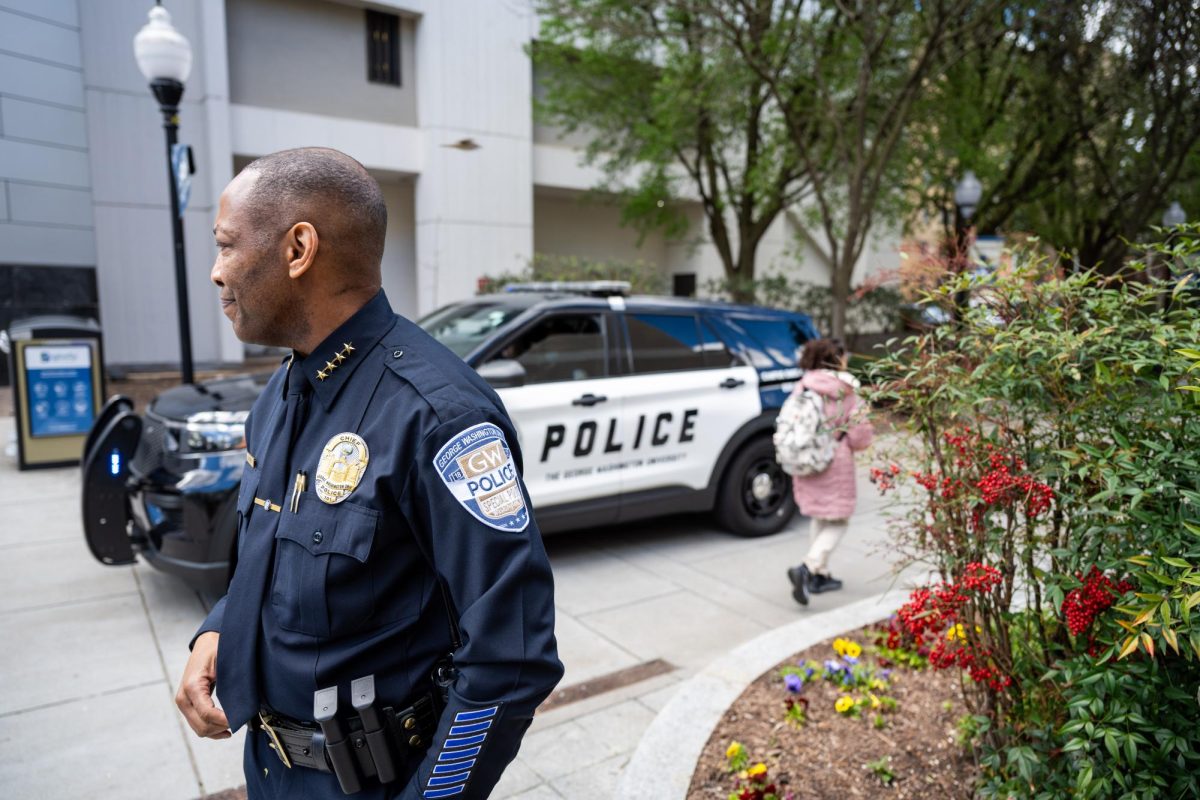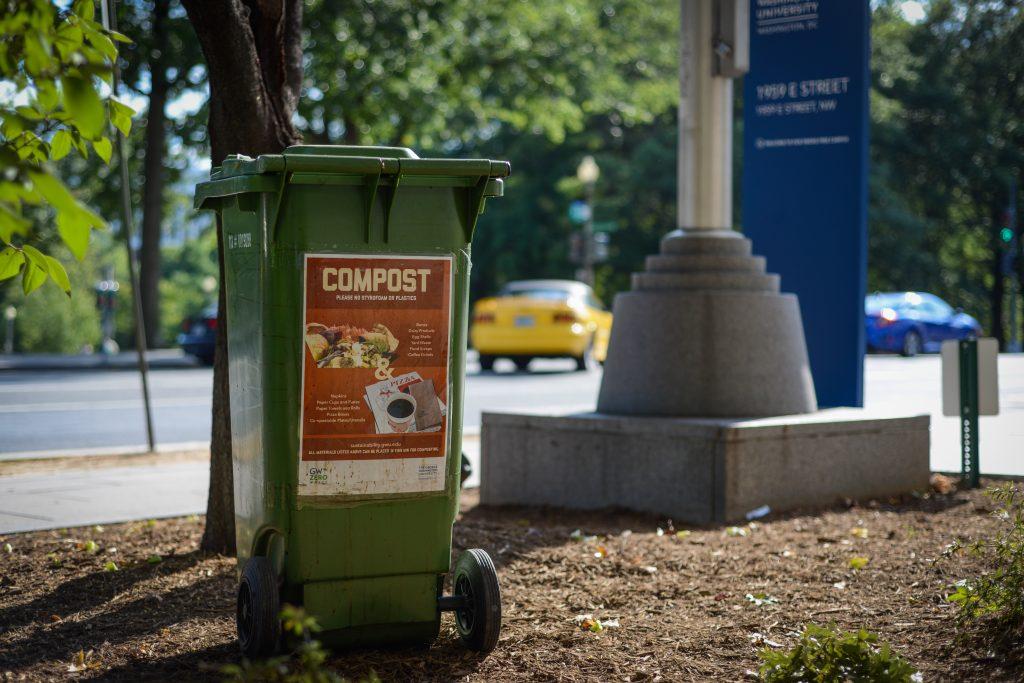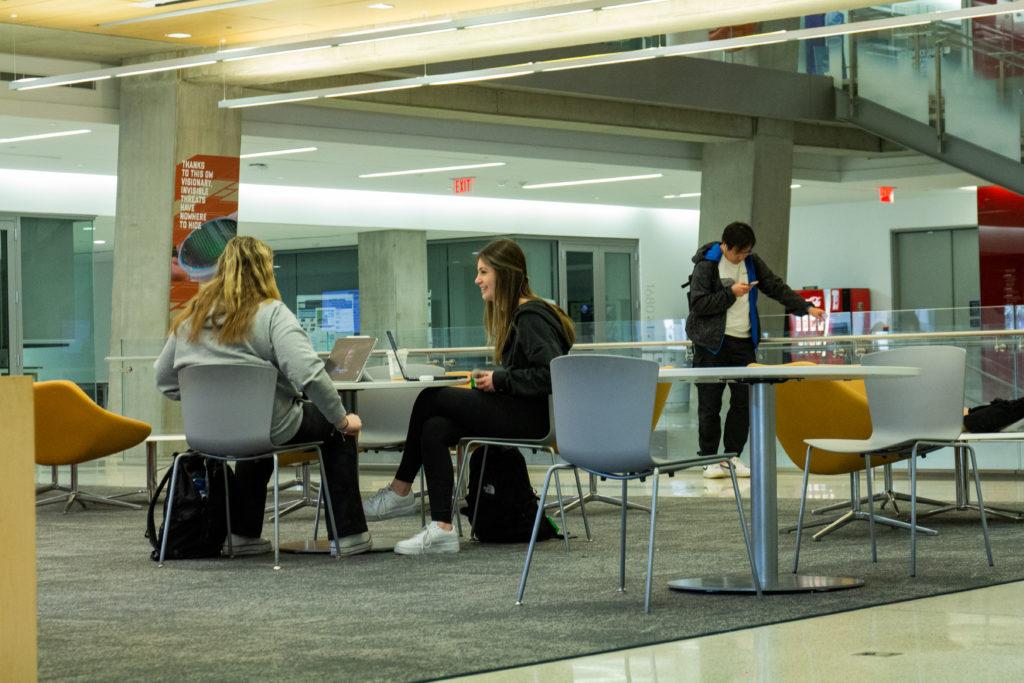A professor of political science talked about her research on factors that contribute to acceptance of LGBTQ+ people at the Elliott School of International Affairs on Wednesday.
Sylvie Tissot, University of Paris 8 professor and author of the book “Gayfriendly: Acceptance and Control of Homosexuality in New York and Paris,” said gay people have become more “mainstream” in popular media because of increased acceptance from straight people. The conversation about the book with moderator Hilary Silver, a professor of sociology, international affairs and public policy and public administration, was hosted by the Institute for European, Russian and Eurasian Studies.
Tissot said common gay and gendered stereotypes still exist in the media and in people’s understanding of queerness, like lesbians being perceived as masculine and gay men as feminine. She said the “reorganizing” of relationships between straight and gay people to be more accepting toward queer people are a result of gay and lesbian movements.
“Queer people have fought for the rights and still fight for their rights for the end of prejudices, discrimination, violence and gay friendly attitudes and gay friendly spaces are a result of these demands,” Tissot said.
Tissot said she interviewed “gay friendly” straight people in the liberal neighborhoods of Park Slope, New York, and Marais, Paris, in her research. She said she chose Park Slope because it was historically a lesbian neighborhood — until increased rent prices changed the demographics — and chose Marais because it is the “only” gay neighborhood in Paris.
She said she hoped the selection of the two cities would help show the difference in the acceptance of gay men and lesbians further, citing how femininity in gay men can be “appreciated” and turned into something positive but that masculinity in lesbians cannot.
In Park Slope and Marais, the majority of straight people interviewed rejected homophobia and said it was “not a problem” to have gay neighbors, Tissot said. She said interviewees from the two neighborhoods supported gay marriage and same-sex parenting.
Tissot said there were also some key differences — in Park Slope, interviewees’ responses emphasized equality and marriage, while Marais residents commonly mentioned themes like sexual liberalism and personal freedom. She said Marais residents had “harsh” negative reactions to same-sex couples raising children and viewed being transgender as “problematic” for medical reasons.
Tissot said the differences in attitudes have varying impacts for lesbians and gay men, highlighting that lesbians are often suspected to be “aggressive” and “not discrete enough,” for example. She pointed to the difference in gender expression through clothing as a possible explanation for this.
Tissot said Marais interviewees said homophobia exists everywhere but in their own community, and Park Slope interviewees said homophobia exists in ethnic communities and the South. She said these responses helped her understand gay-friendliness in new terms, including heterosexual people trying to answer questions the “right way” to maintain moral authority.
Tissot said she hopes her interviews contribute to a better understanding of the acceptance of queerness in North American and European countries, especially in the wake of the increasing LGBTQ+ hate in the United States and Europe. She said her interviews with straight residents were not meant to expose their homophobia or define the terms of true acceptance of queer people.
“The idea is to acknowledge that there has been progress,” Tissot said. “And to consider that progress involves changing boundaries rather than the end of rejection, hate and exclusion.”











